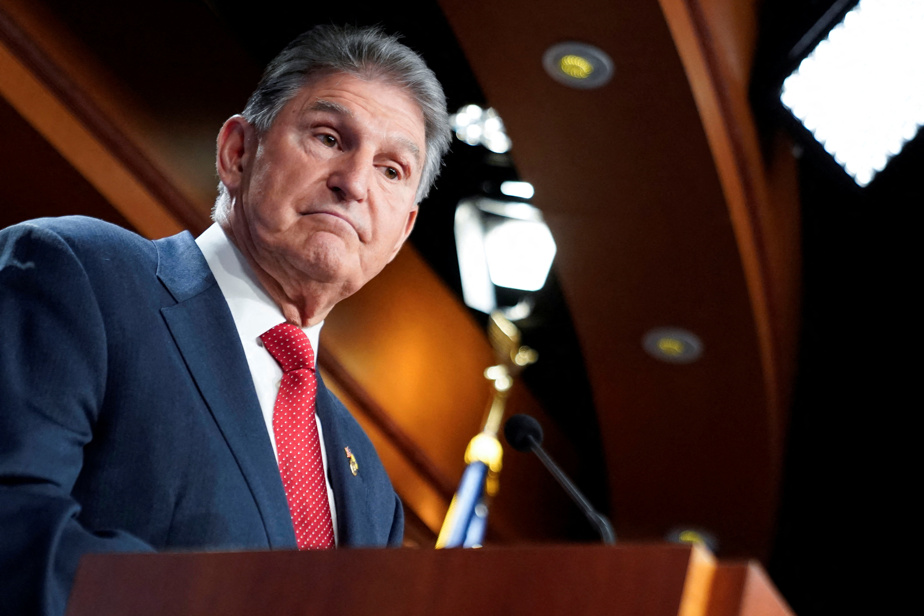One of the many images that caught the imagination during this sadly historic week in the United States occurred not during the indictment of Donald Trump, but the day before. There was a screen showing President Joe Biden’s real-time speech on his economic policy, and right next to it, the spotlights of all the American cable news channels were trained on the plane of the ex-president not making than landing in New York.
Politically, this dynamic works to Biden’s advantage – much like the 2020 campaign, which he won by largely staying in the basement of his residence and letting Trump attract the overwhelming majority of (negative) attention to him.
However, while there was little interest in the current president, choosing to decry the climate of extreme division fueled by his predecessor, there was even less interest in another Joe who should deserve our attention: the Democratic senator of West Virginia Joe Manchin.
Manchin is currently serving his third term in the Senate, having served two as governor of the long-deeply Democratic state and becoming one of Trump’s most important electoral strongholds. Having been elected as a senator in 2010 with the promise of being a true moderate voice, likely to rally both to his party and to that of the opposing party, he kept his commitment. For more than a decade, Manchin’s vote record in the Senate has been smack dab between the core Democratic caucus and the Republican caucus.
He is part of the now tiny group – made up of 3 out of 100 elected to the US Senate, the other two being Republicans Susan Collins of Maine and Lisa Murkowski of Alaska – repeatedly daring to challenge their party’s orthodoxy on major issues. . Remarkably, Collins and Murkowski both announced publicly last week that they support the re-election of Manchin, a Democrat, in 2024. This follows the public support Manchin had also bestowed on them, during their respective re-election campaigns. in 2020 and 2022.
Despite this support, in an era of extreme division, sulking the party line may not be enough to win re-election. Being a Democrat in a Republican state threatens to spell the end of Manchin’s political career.
It is in this context that a few days ago, when questioned on the subject, Manchin left the door wide open to the possibility of launching an independent presidential candidacy, appealing to the center of the American electorate.
Strategically, Manchin’s chances of success – like those of any candidate not affiliated with either major party for generations – would be negligible. Perhaps the most likely impact of an independent candidacy would be to disproportionately gouge votes from Joe Biden’s column.
This possibility, combined with Manchin’s repeated “heresy”, makes him an unloved figure on the left wing of the Democratic Party.
However, it is not simply, as some wise heads repeat, that the party needs Manchin in order to even be able to hope to keep its seat in West Virginia, and thereby its narrow majority of 51 to 49 in the Senate in 2024. Immensely more importantly, the American political system needs elected officials like Manchin to even hope to function.
One of its most important founding fathers, James Madison, saw in pushing different factions to continually negotiate as the healthiest and most stable way to manage the affairs of such a vast, heterogeneous, and complex nation. .
Hence the existence of a system of checks and balances – and a government whose almost every major achievement of the last century has been bipartisan.
It is no coincidence that, in recent years, the threats of paralysis of the American State have multiplied because we cannot reach an agreement to pass a budget, if the struggles around appointments to the Court supreme have become so bitter and, yes, if the elections and the electoral results are so disputed.
In the American system, polarization rhymes with dysfunction.
Democrats need Joe Manchin. And I’m not talking here about followers of the Democratic Party – but about followers of American democracy.

